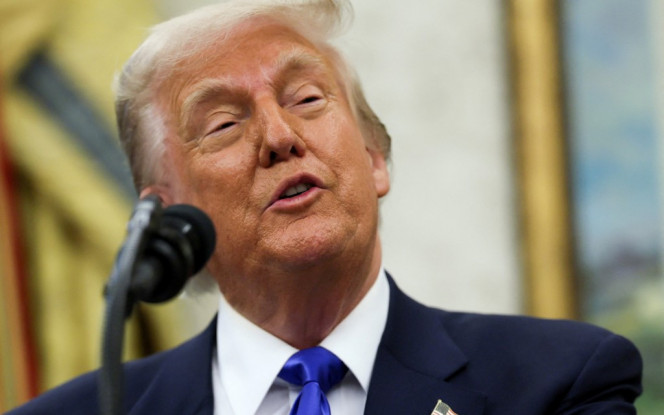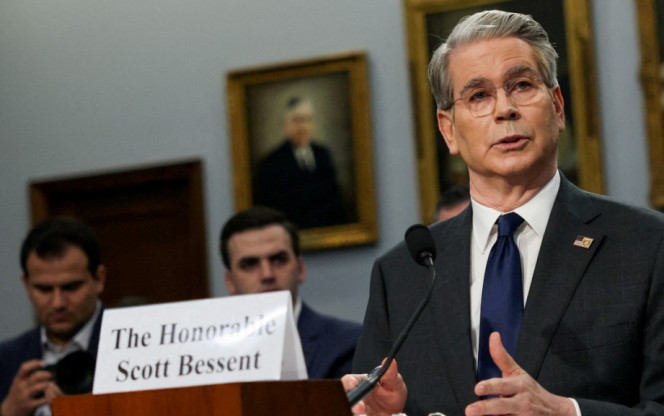Thailand's Military Ceasefire; Stalemate in US-China Negotiations; Influx of Cheap Chinese Goods in India; Latest Updates within China; OpenAI to Pivot Back to Non-Profit

Thailand's Military Ceasefire Extension
According to The Paper, Thailand has announced an extension of its temporary ceasefire until May 31st, 2025. This move, as reported, aims to facilitate disaster relief and reconstruction efforts. The Thai military asserts its commitment to national interests, ensuring lasting peace, and stability. The narrative here reflects a domestic priority to stabilize and rebuild amidst ongoing tensions, emphasizing defense as a tool for humanitarian aid.
The Paper's focus on internal stability mirrors a common Chinese state media perspective, emphasizing governance and development over external conflict narratives. This report also suggests an inclination towards resolving issues through national resilience rather than seeking international intervention.
Stalemate in US-China Trade Negotiations
The New York Times Chinese edition discusses the current deadlock in US-China trade negotiations. The article highlights the lack of formal discussion plans between both parties. With heightened taxes on Chinese imports in the US, China's search for alternative markets becomes pressing.
This piece paints a picture of economic friction and strategic maneuvering, suggesting an enduring rivalry. The New York Times, known for its analytical approach, provides a narrative of caution, interpreting the trade war as a broader geopolitical chess game.
Sina presents an exclusive discussion among northeastern US and Canadian state governors, focusing on the tariff policies implemented by the Trump administration and their impact on US-Canada relations. With particular interest in understanding how these tariffs might disrupt strong trade connections, governors criticize the policies for not aligning with states' or national best interests. This regional critique points to a broader, systemic concern over protectionist policies potentially hindering economic synergy between these neighboring nations.
Turkey as a Mediator in Middle Eastern Conflicts
United Daily News reports on the US's efforts to collaborate with Turkey in resolving Middle Eastern issues, including the war in Ukraine and Iran's instability. As a NATO member with close Russian relations, Turkey plays a unique diplomatic role.
This piece underscores Turkey's strategic position and the US's reliance on unconventional allies to mediate conflicts. United Daily News, reflecting a regional focus, may emphasize Asia-Pacific dynamics while highlighting the complexity of international alliances.
India’s Woes Amid US-China Trade Tensions
The BBC covers India's economic concerns over an influx of cheap Chinese goods due to disrupted supply chains from the US-China tariff war. The article details the struggles of Indian manufacturers like Thirunavkarsu's textile factory facing declining demand due to cheaper imports from China.
BBC's angle provides a ground-level view of how macroeconomic policies ripple outwards, affecting individual enterprises and broader trade balances. This narrative suggests an acute awareness of geopolitical influences on economic stability and underscores India’s supply chain vulnerabilities in a globalized economy.
Escalating Tensions in Moscow with Drone Strikes
The Paper reports on Russian military forces striking down multiple drones attempting to attack Moscow, following consecutive days of UAV assaults. No casualties or significant damages were reported, yet the airspace tension remains.
From The Paper’s coverage, there emerges an ongoing narrative of resilience and defensive capability, reflecting China's sensitivity to security matters and sovereignty, echoing a stance of maintaining internal equilibrium despite external threats.
Symbolic Exchanges at Russian Military Parades
Sina relays a heartwarming moment during a military parade where Chinese students exchanged tokens of appreciation, symbolizing international camaraderie amid geopolitical tensions. This gesture underscores the softer diplomacy played on cultural and personal levels.
Sina’s narrative tends to focus on human interest and self-characterization as a bridge in intercultural relations, reflecting a broader Chinese diplomatic tactic of people-to-people exchange promoting soft power.
The Enduring Influence of Chinese Culture in Africa
People's Daily showcases the establishment of the textile museums in Djibouti as a symbol of Sino-African collaboration. The article highlights the role of Chinese craftsmanship and cultural exchange as significant drivers of bilateral relations, projecting cultural diplomacy to strengthen ties.
People's Daily, serving as a state media outlet, often highlights China's international collaborations, embedding the narrative of development partnership and cultural promotions as intrinsic national values.
Across these varying narratives, there is an evident tension between economic and military strategies, with human stories weaving a thread through the political landscapes. From ceasefires to economic pressures, China remains a pivotal player in shaping global and regional dynamics, portraying different faces from defense resilience to cultural exchange.
Shutdown Incident at Pang Donglai: Tech Industry Dynamics and Social Media Tensions
The sudden shutdown of Pang Donglai’s website due to backend maintenance has stirred discussions about the tech ecosystem's stability in China. The company’s move to temporarily close their platform for an upgrade emphasizes the growing pains within China's dynamic tech industry. Notably, this incident ties into existing social media tensions, particularly with prominent influencer Dachu Dachu accusing Pang Donglai's operations of unethical practices. The allegations of profiting from low-quality jade underscore a prevalent narrative of shifting consumer expectations and accountability in China’s digital commerce.
Authorities' decision to suspend the Dachu Dachu account after complaints from Pang Donglai highlights a broader censorship and control narrative that aptly illustrates the complex interplay between digital enterprise growth and state influence. This decision impacts the public perception of fairness in commercial accusations and responses. Altogether, these developments reflect a culturally nuanced understanding of China’s tech scene, where corporate resilience and government policies frequently collide.
Rediscovering History through Chinese-Russian Film Collaborations
The upcoming release of the Chinese-Russian movie "Red Silk Thread" illustrates cultural diplomacy’s role in reinforcing historical narratives. Set to premiere this September, the film is expected to resonate with audiences by reflecting on historical alliances during the anti-fascist war efforts. This cinematic endeavor is a testament to enduring bilateral collaborations aimed at deeper cultural engagement.
Moreover, this film presents an opportunity to engage a modern audience with historical content, potentially enhancing international cultural understanding and solidarity. As cross-cultural partnerships gain momentum, it signifies a compelling investment in using cinema as a bridge between historic alliances and contemporary understanding, enriching both nations' cultural tapestries.
Trade Policy Shifts Impacting Guangzhou
In an article from The New York Times Chinese Edition, the spotlight is on the cessation of the "de minimis" trade policy, which has left garment factories in Guangzhou facing a critical turning point. This policy previously allowed imports below a certain value threshold into the United States without tariffs, creating substantial advantages for some Chinese exporters. As this policy ends, local manufacturers are grappling with potential challenges of increased costs and reduced competitiveness in the US market. By shifting the goalposts abruptly, the US aims to level the playing field for its domestic manufacturers, but this shift places pressure on Chinese exporters to seek new markets or adapt their business models.
Shanghai's Surge in Consumer Spending
Yicai Global reports a 13.1% annual increase in consumer spending in Shanghai during the Labour Day holiday. Both online and offline transactions significantly rose, with international tourists spending 212% more than the previous year. Notably, policy measures like reducing the minimum purchase for tax refunds and localized subsidies effectively boosted consumption across various sectors. This trend reflects the Chinese government's strategic focus on domestic consumption to drive economic growth and mitigate reliance on external trade amidst global uncertainties.
Stock Market Gains Post-Holiday
According to a Tencent report, the first trading day after the Labour Day holiday saw a notable rise in Chinese stock markets, with indices like the CSI 300 and Shenzhen Component Indexes climbing. This increase is attributed to renewed investor confidence, buoyed by favorable economic indicators and policy support. However, the backdrop of U.S.-China trade tensions and the evolving global economic landscape adds layers of complexity to this optimism. Investors remain watchful of macroeconomic shifts and policy adjustments that can unexpectedly alter market dynamics.
AI-Generated Religious Images Stir Controversy
Amidst the breakthrough advancements in AI, synthetic intelligence often finds itself embroiled in controversy. Recently, AI-generated images depicting religious attire sparked a significant outcry. The Sing Tao reports an image of a prominent politician dressed in religious garments was mistaken for a playful jab, yet many took offense. The photo circulated on Truth Social, leading to a backlash from religious communities, particularly Catholics. The politician denied involvement, pointing fingers at artificial intelligence for the unintended blend of creativity and insensitivity. While some argue this is a simple case of misunderstanding inviting humor, religious leaders globally have expressed their displeasure.
This incident highlights AI's potential to inadvertently tread on cultural and religious sensitivities. Such sensitive AI applications call for not only better regulation but also for nuanced understanding within AI systems—a critical factor considering the rise of automated content generation.
OpenAI’s Structural Realignment
In a shift shaking up the tech landscape, Sina reports on OpenAI's strategic pivot back toward non-profit control. Initially moving towards a for-profit model to attract investors and fund ambitious AGI projects, this pivot suggests OpenAI's reconsideration of its guiding principles. By forming a public benefit corporation (PBC), OpenAI retains its mission-focus on AI for humanity’s greater good.
This readjustment reflects broader debates about balancing profit motives against ethical AI development. Bret Taylor, chairman of OpenAI's board, emphasized ongoing discussions with stakeholders like Microsoft and newly appointed board members to fine-tune this alignment. The recalibration suggests OpenAI's commitment to uphold principles amidst funding challenges, reflecting a consensus that aligning AI contributions with societal benefits requires innovative governance structures.
Meanwhile, internal disagreements led to legal challenges, exemplifying tensions between profit-driven motives and foundational values. The industry is watching closely how OpenAI navigates this terrain, as it will set precedents for other AI entities grappling with similar ethical considerations.


